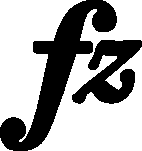



|
b. 174
|
composition: Op. 21, Concerto in F minor, Mvt I
..
The naturals before fourths, opening each of the group of semiquavers, are written in A (→GE1→FE) only in the 1st and 4th groups. EE and GE2 include the correct text. category imprint: Interpretations within context; Differences between sources issues: EE revisions , Errors in FE , Accidentals in different octaves , Errors in GE , GE revisions |
||||||||
|
b. 174
|
composition: Op. 21, Concerto in F minor, Mvt I
..
In A (→GE1→FE) there is no category imprint: Interpretations within context; Differences between sources issues: EE revisions , Accidentals in different octaves , Inaccuracies in GE , Inaccuracies in FE , GE revisions , Inaccuracies in A |
||||||||
|
b. 174
|
composition: Op. 21, Concerto in F minor, Mvt I
..
The absence of the c1 note in the editions is certainly a result of an oversight of the engraver of GE1. Although in A the note is slightly less clear than e category imprint: Differences between sources issues: Errors in GE , Uncertain notes on ledger lines |
||||||||
|
b. 174
|
composition: Op. 21, Concerto in F minor, Mvt I
..
The first of two category imprint: Differences between sources issues: Errors in GE , GE revisions , Partial corrections |
||||||||
|
b. 174
|
composition: Op. 21, Concerto in F minor, Mvt I
..
The missing staccato dot over the F category imprint: Differences between sources issues: Errors in GE , GE revisions |

 before F
before F 1. The sign was added in
1. The sign was added in 

 1, its presence is unquestionable. In similar contexts, Chopin would generally use an arpeggio of the full four-note chord, cf. e.g. the Concerto in E minor, Op. 11, 1st mov., bars 210, 219 and 570, the Ballade in G minor, Op. 23, bar 124, the Scherzo in B
1, its presence is unquestionable. In similar contexts, Chopin would generally use an arpeggio of the full four-note chord, cf. e.g. the Concerto in E minor, Op. 11, 1st mov., bars 210, 219 and 570, the Ballade in G minor, Op. 23, bar 124, the Scherzo in B
 under chord in
under chord in 



 combination was not reproduced in accordance with the notation of
combination was not reproduced in accordance with the notation of